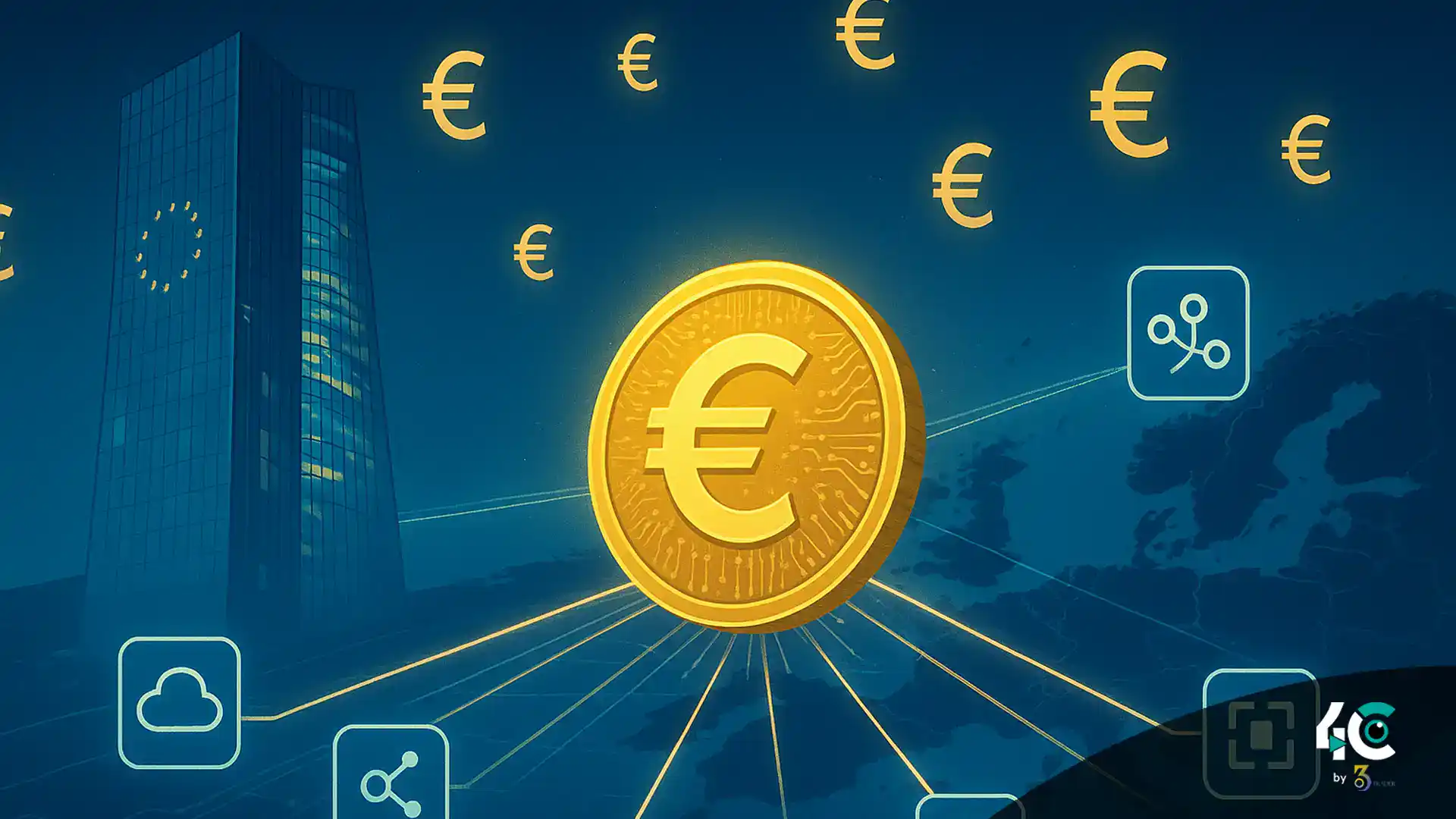ECB Signs Framework Agreements with Tech Firms
The European Central Bank has signed framework agreements with technology providers, including Feedzai and Giesecke+Devrient (G+D), to prepare for a digital euro.
These agreements aim to enhance fraud detection, risk monitoring, and the creation of a secure payment infrastructure. According to ECB board member Fabio Panetta, the framework will initially leverage cutting-edge technology and later be applied in the digital euro context.
Experimental Phase and Citizen Feedback
Earlier this year, the ECB launched an experimental phase engaging nearly 8,000 citizens to gauge public demand for a digital euro. The experiment included feedback on 3D prototype designs to inform usability and interface considerations.
Also Read : Cloudflare Gets into Crypto with NET Dollar Stablecoin for AI Usage
Scope of the Framework Agreement
The agreements cover:
- Fraud and risk management
- Secure exchange of payment data
- Software development for digital euro infrastructure
Dr. Ralf Wintergerst of Giesecke+Devrient confirmed that ECB will assist in finalizing plans and timelines for the Digital Euro Service Platform, with guidance from the ECB Governing Council and EU legislation.
Digital Euro Timeline and Potential Launch
The ECB has been exploring a digital euro since 2021. The formal preparation phase of the Euro Digital CBDC began in late 2023. While framework agreements indicate progress, the ECB has stated that a launch decision will occur only after Digital Euro Regulation adoption, with a potential rollout projected for 2029.
The scope of the project will remain adaptable to legislative adjustments, and no actual payments are involved at this stage.
Innovative Features Under Development
The partnered tech firms will provide:
- Alias lookup: Send and receive digital euros without knowing the payment provider of the other party.
- Offline payment capabilities: Ensuring transactions are possible without constant internet connectivity.
These features aim to guarantee that the digital euro will be flexible, secure, and widely accessible to both EU citizens and businesses.
Stablecoin Oversight and EU Policy Context
As the digital euro project develops, the ECB and EU regulators have voiced concerns over certain stablecoins. Christine Lagarde, President of the ECB, highlighted the need for legislation to mitigate risks from multi-issued stablecoins under the Markets in Crypto-Assets (MiCA) regulation or issued by non-EU actors.
The European Systemic Risk Board (ESRB) also recommended a ban on multi-issued stablecoins. Although non-binding, this shows that European authorities are more cautious about private digital assets than their US counterparts.



























